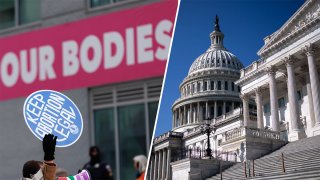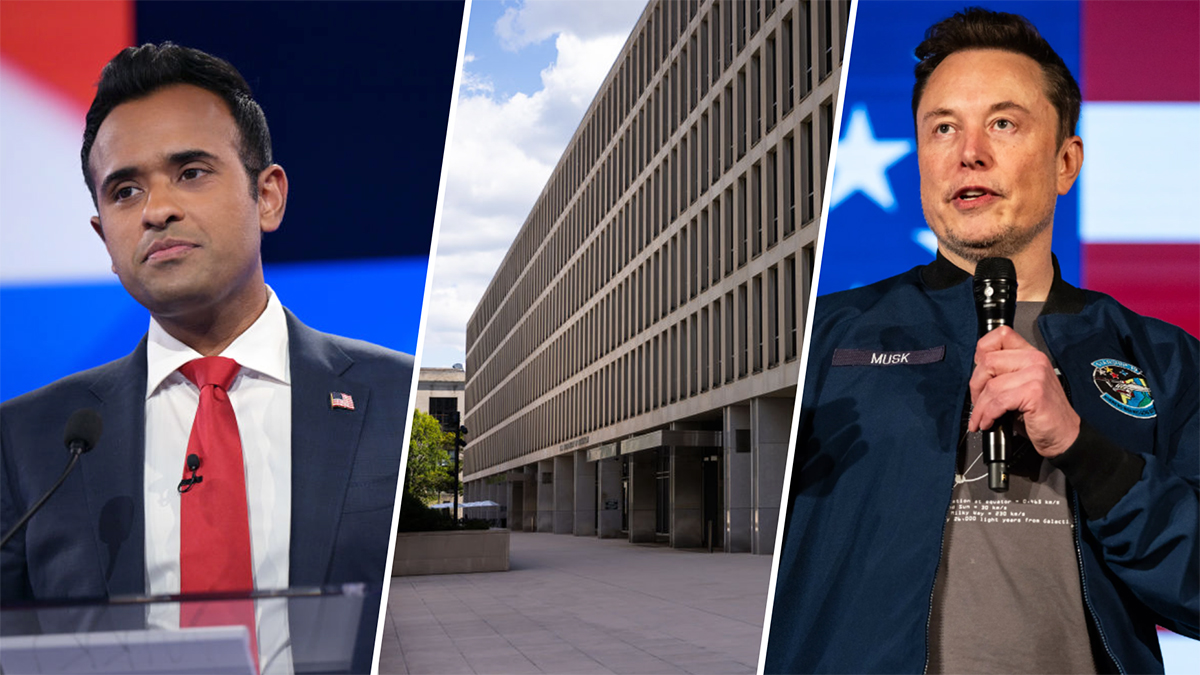
D.C. abortion rights advocates say they’re bracing for the possibility of restrictions in the District in the wake of President-elect Donald Trump's victory — and because D.C. is not a state, abortion access is particularly vulnerable, they say.
Abortion laws in D.C. currently allow patients access to the procedure in all stages of pregnancy, without a waiting period or parental consent for minors.
With Republicans in control of the White House, Senate and House of Representatives, abortion restrictions in D.C. are possible, said Melissa Wasser, policy counsel of the ACLU of D.C.
“Congress does get to review all of our legislation, and if they so choose, and if they have the numbers, they could restrict or even ban abortion in D.C., and local legislators would just kind of have to go with it unless we're made a state,” she said.
We've got the news you need to know to start your day. Sign up for the First & 4Most morning newsletter — delivered to your inbox daily. Sign up here.
How DC has been a 'safe haven' for abortion access
D.C. has 13 virtual abortion providers who serve those with a D.C. mailing address and three in-person providers who can provide care to anyone, regardless of where they live.
The District has seen an influx of people traveling here for abortions, especially after the Supreme Court overturned Roe v. Wade in 2022, said Francesca McDaniel, assistant vice president of policy and advocacy at Planned Parenthood of Metropolitan Washington, D.C.
“It is important that D.C. remains a safe space for people to travel to care,” McDaniel said. “And it means that the people who live here — D.C. residents — can continue to access the care, but also that we can continue to be a safe haven for the thousands of people that travel to D.C. for abortion care.”
That haven is in a precarious position now, said Alisha Dingus, development director at the D.C. Abortion Fund.
“All of that can go away because we don't have statehood,” she said. “If Congress decides that they want to get involved in D.C.’s business, and we've seen them do that, we've seen them try to stop things that we want to pass that are supported by a majority of the city.”
Why not being a state matters for the future of DC abortion laws
The president can take over many of the powers the mayor and D.C. Council have, as News4 has reported.
D.C. Mayor Muriel Bowser’s administration has prepared for months for how a Trump win would affect District residents.
“Driven by our values, we will pursue a collaborative approach to our federal priorities in the District," the mayor said in a statement after Trump's victory.
The Home Rule Act of 1973 created the D.C. Council of local elected leaders but allows Congress to review every piece of legislation they pass, including the budget. Congress can add riders to D.C. legislation. For example, the Dornan Amendment was added to the D.C. budget in 1988 and prohibits the use of Medicaid to cover abortions.
The longstanding campaign to make D.C. the 51st state would let local voters and leaders decide what happens in D.C., including on abortion, Wasser said.
“Statehood is the way to ensure that we keep abortion safe and legal at all stages of pregnancy in D.C. Statehood is the way that we grant equal representation to 700,000 folks in the District,” she said. “[…] Until we're made a state, we're always going to be on that unequal footing with other states who regularly take steps to protect abortion.”
For D.C. to become a state, the House and Senate would have to pass legislation by majority vote, then the president would have to sign.
Trump told the New York Post in 2020 that “D.C. will never be a state” because Republicans would not let the District add Democratic seats in Congress, since D.C. overwhelmingly leans blue.
A Trump spokeswoman issued a statement this summer about abortion rights, including in D.C.
“Democrats want to gaslight Americans and sow fear, but President Trump has long been consistent in supporting the rights of states, and the District of Columbia, to make decisions on abortion,” campaign press secretary Karoline Leavitt told Politico in August.
News4 asked the Trump campaign team about his stance on D.C. statehood and abortion access in the District, but they did not respond.
‘How do we protect our communities?’
In the months before Trump’s return to the White House, D.C. abortion advocates are looking at what they can do now.
“Like most organizations, we are doing our sort of scenario planning of just what would this look like, and the focus of it being, how do we protect our communities? How do we make our communities aware of what's going on? How do we digest any particular policies that might come down the pike to understand?” McDaniel said.
News4 sends breaking news stories by email. Go here to sign up to get breaking news alerts in your inbox.
Regardless of what Trump and a Republican-led Congress do, abortion advocates said they’re not going anywhere.
“I think we can't move to despair, even if a bad thing happens,” Dingus said. “Because I just keep reminding myself that abortion funds have existed through many different political administrations and many different hostile moments, and we're still here.”



